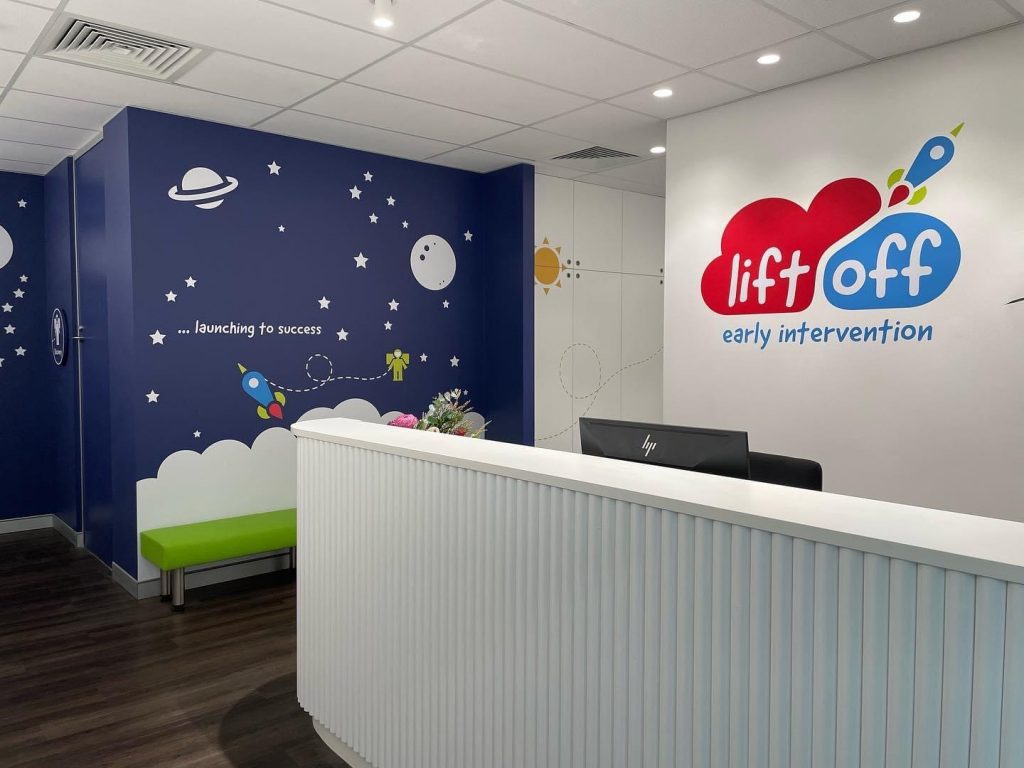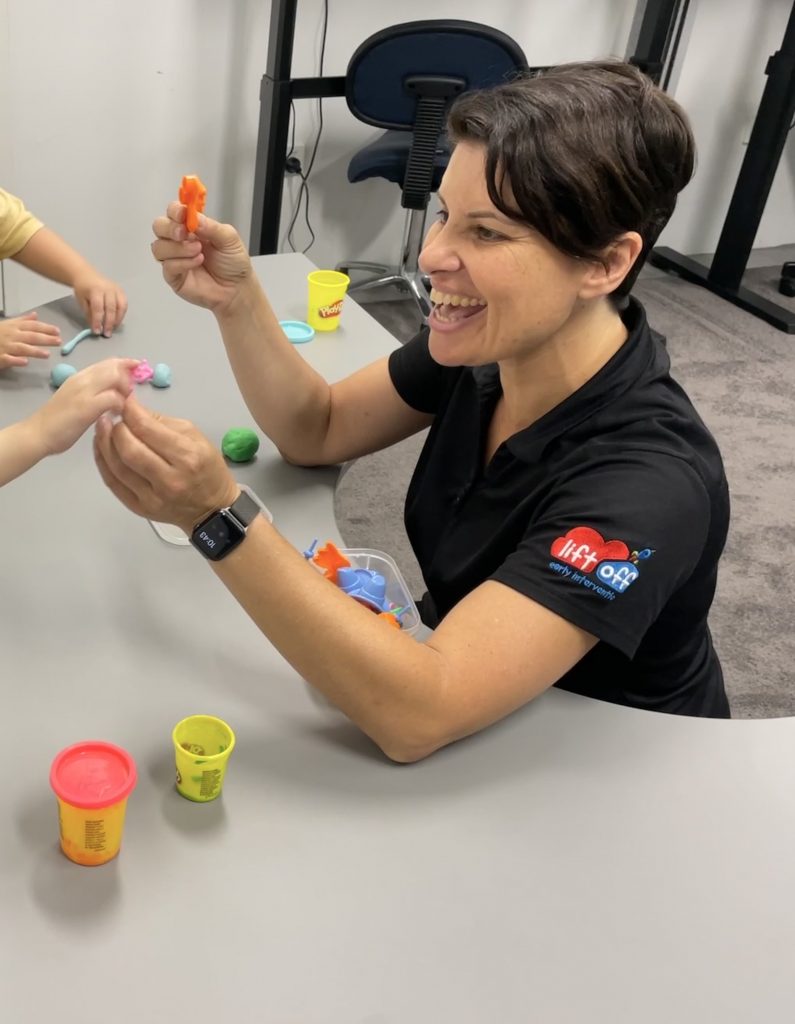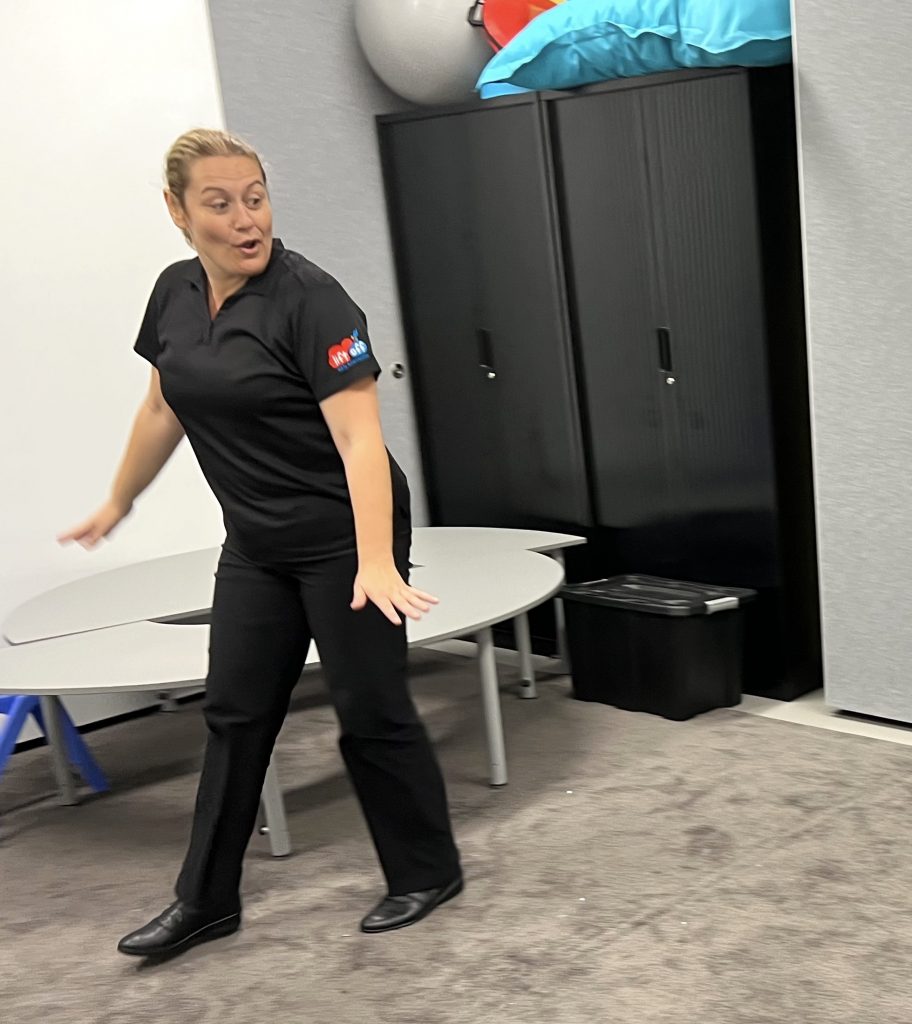For over two decades, Voula Valanidas has been supporting children with autism spectrum disorder and special needs.
“I have been in the special education field since 1999 as a teacher,” Voula tells The Greek Herald.
In 2001, Voula completed her Masters of Special Education and in 2019, she completed her Masters of Autism.
This, alongside her qualification as an Early Start Denver Model (ESDM) therapist, gave her the necessary qualifications and experience to work with children from 0-18 years of age.
Just last year, she founded a leading early intervention clinic in Sydney’s south-west.
The Roselands-based Lift Off Early Intervention supports children with disability, autism spectrum disorder, development delay and other additional needs, offering specialist care in the form of EDSM therapy and development education therapy.

“We have children as young as 18 months attending the clinic,” Voula says.
The clinic is also a training centre for early educators, teachers and parents.
As founder and director, Voula says she is “blessed to be working in my passion every day.”
How and why did you first get involved in early intervention support?
My continuous thirst for knowledge led me to the ESDM course. I loved the course and how impactful and positive the therapy has shown to be. I loved the significant role that early intervention has in a child’s life.
Although I miss working with school-aged children, I know that my purpose on earth was to work with the little ones, because I’m a big kid at heart!

The aim of our service is to alter the trajectory of a child’s development in collaboration with each family. Getting assistance early is critical because the connections in the brain are most adaptable in the first three to four years of life.
These connections are the foundation for learning and behaviour. I love it when a child learns a new skill. I know that I have been an active part of that, and that ignites something even more within me, to get more positive results. Reporting to parents and sometimes making them cry happy tears is what it’s about for me.
What do your sessions look like?
ESDM is a naturalistic play-based therapy. So, we play!
The research has always told us that children learn best through play, so it is not uncommon to hear raspberries being blown by a therapist or find them rolling around on the floor or jumping up and down during a therapy session.
The child and therapist engage in fun, age-appropriate activities and routines that assist in the development and facilitation of communication and social interactions. In each interaction, both child and therapist are active contributors, offering suggestions, taking turns and sharing the responsibility for initiating, playing and finishing routines and activities.
To make sessions fun and engaging, and maintain child motivation, the therapist plans a session using a variety of developmentally appropriate activities. The activities are specifically selected, focusing on each child’s ESDM goals, and embedding their interests and preferences.
ESDM sessions can take place in any setting that is part of the child’s daily life – home, clinic or daycare. Any adult who spends time with the child can use ESDM strategies to make everyday activities, such as eating and bath time, an opportunity for interaction and learning.
What advice do you have for parents struggling to identify or respond to their child’s needs?
My advice is simple. If you are concerned or have questions about whether your child is hitting developmental milestones, seek advice. A good developmental paediatrician should be your first port of call.
Read books (not Google) and seek out parent training. It is important to listen to those around you that may be raising concerns. I always say that it is better to have an assessment done for reassurance if you, or perhaps an early educator at daycare is seeing red flags.
Early detection and intervention are critical to significantly reduce the impact of autism spectrum disorder, other neurological disorders and developmental delay.
Historically, children with additional or complex needs are taken out of mainstream education settings so they can access specialist support. What is your take on this and what is your hope for these children in the future?
Every single person is unique, whether neurotypical, neurodiverse, or disabled. I am a firm believer that every one of us has strengths and challenges.
I believe that a child needs to be placed in the environment that best suits them, allowing them to thrive and set them up for success. An informed decision must be made considering what each child’s strengths are and how the environment will assist to build new skills and overcome weaknesses.
Recently, we have seen a shift in mainstream schools as parents of children with disabilities choose to enrol their child(ren) at their local school.
We also know that there are a vast number of children with disabilities and disorders placed in mainstream classrooms due to the shortage of support unit classes within mainstream schools. This situation brings many challenges, unknowns and stress for both parents and teachers.


Currently, there are 4-5 children in each mainstream classroom, with or without a formal diagnosis, that must have accommodations and modifications to be successful in the classroom.
Many teachers do not have the training, strategies and time needed to effectively include children with disabilities in the mainstream classroom. They are asking for assistance as they feel helpless.
My hope for the future is that all children are placed in school settings where the decision is based on their individual goals. Whether it be mainstream, support unit or special school, the decision must be made with the child’s needs at front of mind, not where they can be slotted in to fill spaces.
I also hope that special education training is mandatory in all teacher training courses to equip teachers with the tools for inclusive education.
Is there anything else you would like to say?
When you see a parent having a difficult time with a child, don’t stare and judge.
Instead, go and ask, ‘how can I help?’
The parents that we work with are the humblest, highly stressed, and most isolated adults you will come across. These parents constantly feel judged wherever they go for having ‘that child’ and most choose to stay home because of this.
It is time that society as a collective, took off their blinkers and looked out for each other.
One question can change that moment and help bring positivity back into their day. On the rare occasion where parents have been asked this question, I can tell you, it has made their day. Choose kindness.
READ MORE: Principal at Lucas Gardens School, Jenny Zagas: ‘We put the person before their disability’.

